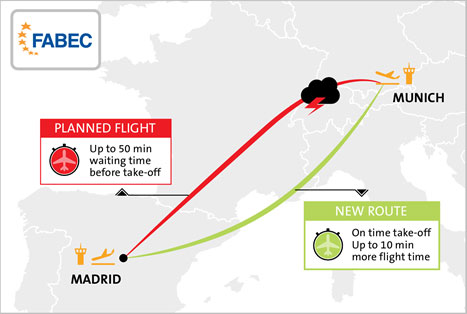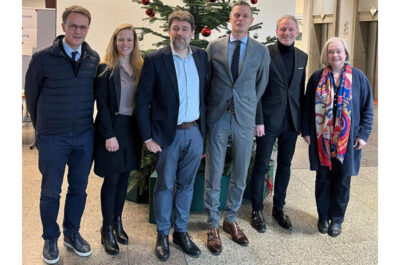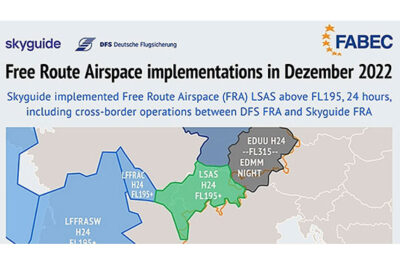
An alternative route to Madrid.
In cooperation with the control centers in Langen, Karlsruhe, Zurich, Marseille and Padua, the Munich control center has designed re-routings to avoid thunderstorm cells.
Compared to previous summers, the 2016 season has suffered an unprecedented amount of severe weather. Heavy thunderstorms have disrupted traffic flows and caused significant delays. Some cells have extended vertically to an altitude making it impossible to fly over them. To ensure the safety of passengers, departures have had to be postponed until the weather fronts have either dissipated or moved on. This means that passengers have had to wait on board for an hour or longer before finally taking off. The FABEC air navigation service providers have addressed this problem and worked out concrete solutions.
In cooperation with the control centers in Langen, Karlsruhe, Zurich, Marseille and Padua, the Munich control center has designed re-routings to avoid thunderstorm cells. It is, for example, not possible to fly a direct route from Munich to Madrid if there is a storm cell above Lake Constance. In this situation, the air navigation services offer the airline dispatch an alternative route that leads south via Italy and then to the west towards Spain. The airline can decide whether to use this alternative or not: would they prefer the longer flight path or a longer wait on the ground. At the moment, DFS has agreements on the implementation of this procedure with four airlines – Lufthansa, Condor, Lufthansa Cityline, and Air Berlin.
Based on the positive results in Munich, further alternative routes will be developed in the coming months involving traffic departing to the northeast and in a second step headed towards Munich. At the FABEC level, the results of this pilot project will be passed on to FABEC partners who will undertake further implementations taking their local circumstances into account.
The airspace of the six FABEC States of Belgium, France, Germany, Luxembourg, the Netherlands and Switzerland is one of the busiest and most complex in the world. The majority of major European airports, major civil airways and military training areas are located in this area. FABEC airspace covers 1.7 million km² and handles about 5.6 million flights per year – 55% of European air traffic. The seven civil air navigation service providers are ANA (Luxembourg), Belgocontrol (Belgium), DFS (Germany), DSNA (France), LVNL (Netherlands), MUAC (EUROCONTROL), and skyguide (Switzerland).
Tatiana is the news coordinator for TravelDailyNews Media Network (traveldailynews.gr, traveldailynews.com and traveldailynews.asia). Her role includes monitoring the hundreds of news sources of TravelDailyNews Media Network and skimming the most important according to our strategy.
She holds a Bachelor's degree in Communication & Mass Media from Panteion University of Political & Social Studies of Athens and she has been editor and editor-in-chief in various economic magazines and newspapers.


































































































































































































































